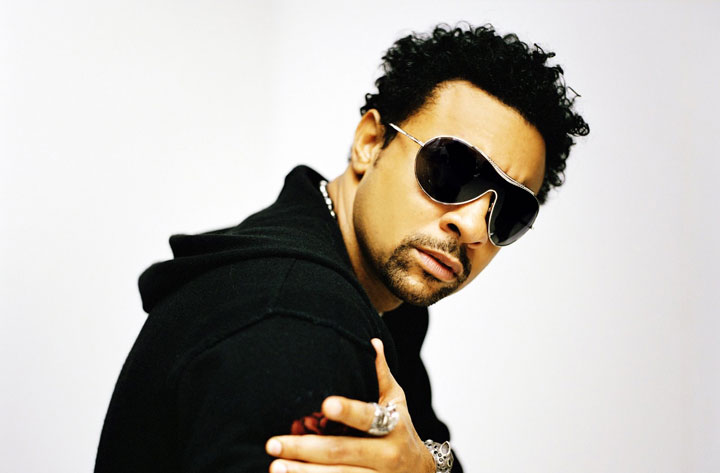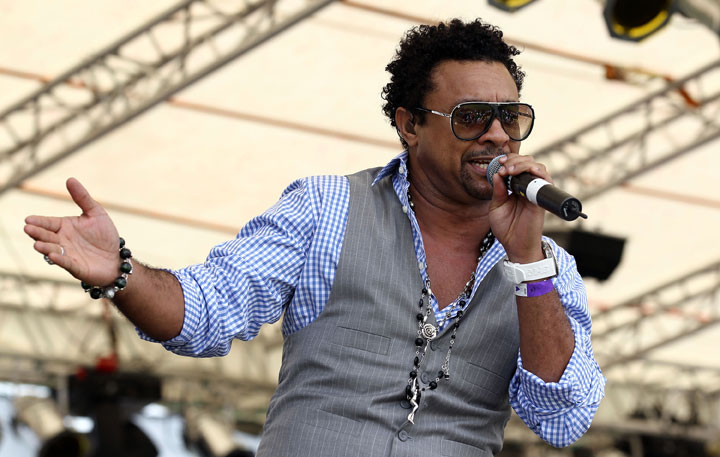TORONTO — Reggae/pop superstar Shaggy will be in Toronto this weekend — but he won’t be performing. In fact, fans shouldn’t expect to see the Jamaican-born artist on a stage in Canada for awhile.

“I did a winter tour in Canada and that s*** is brutal, bro,” he admitted Tuesday in an interview with Global News. “Maybe next summer.”
Shaggy is braving the spring chill on Saturday night to attend the University of West Indies Toronto Benefit Gala, where he will receive an award for his humanitarian work.
“How can I turn that down? It puts me in the position to be with a lot of very well-connected and wealthy people that can basically help make a difference for the less fortunate,” he explained.
“Any opportunity I get to be put in the same place as these people, where I can get them to do amazing things with their wealth to benefit the poor, then I’m going to take that opportunity.”
Shaggy said his charity work, which largely consists of raising funds for the Shaggy Make a Difference Foundation in support of the Bustamante Hospital for Children in Jamaica, is more important than his music.
“It’s the satisfaction I get from it,” he said. “It’s a passion for me now because I feel like I have a purpose.”
Shaggy, who was born Orville Burrell, said he loves hearing parents tell him about a child saved because the hospital had equipment his foundation provided. “There’s no hit record or hot girls or cars that give you that kind of feeling,” he said. “It’s the most meaningful feeling that you can ever have.”
- Taylor Swift surprises fans with double album, ‘The Tortured Poets Department’
- Hot Docs left out of budget 2024 funds as financial woes cloud arts organization
- Quebec artists demand more provincial funding, say many struggle to ‘work creatively’
- Calgary Opera’s production of ‘Das Rheingold’ features fantastic effects, costumes
READ MORE: All the latest music news
Shaggy’s career exploded 22 years ago with his cover of “Oh Carolina” and has been sustained by No. 1 hits like “Boombastic,” “It Wasn’t Me” (with vocals by Rikrok) and “Angel” (with Rayvon).
“I always had these big records with people who were relatively unknown,” he recalled. “It’s good to know that I can carry a record by myself, that I don’t need these big names.
“I’m blessed with having these monster records when they do come.”
Shaggy acknowledged it’s been many years since he’s had a big commercial hit. He has kept busy collaborating with other artists — including Juno-winning Toronto band Magic! — and he released a Grammy-nominated reggae album (he won a Grammy in 1996).
Shaggy also teamed up with Swedish-Congolese artist Mohombi, Australian singer Faydee and Romanian producer Costi for the truly international single “Habibi” (titled “I Need Your Love” for English audiences). The video has been viewed more than 23 million times.
Shaggy said he collaborated last weekend with Pitbull on a new song “that was out of my genre a little.”
The 46-year-old said he knows the business of music has changed dramatically.
“Records are selling less but music is more popular than ever,” said Shaggy. “Music still evokes emotion on a global scale. Every kid buys into it. So it might not make money in terms of music sales because people can access it for free, but you’re probably finding artists making way more money now than when records used to sell because when records were selling, the record companies made all the money.”
Throughout his career, Shaggy has benefitted from having a broad fan base and the ability to play just about anywhere — something not all Jamaican acts can boast about. Many have been barred from entering countries like Canada due to lyrics that promote hate against gays and lesbians.
It’s music reflective of a country where there are strict anti-gay laws and, according to a 2014 report from Human Rights Watch, LGBT Jamaicans are “taunted, threatened, fired from their jobs, thrown out of their homes, or worse: beaten, stoned, raped, or killed.”
Shaggy, who lives in Kingston with his wife and children, said this has to change.
“Is it difficult for a gay person to live in Jamaica? Of course. There’s old fashioned standards, but these things are going to take time,” he explained. “We just got to keep knocking away at it until people change their views and opinions.”
Shaggy said his home country doesn’t deserve its homophobic reputation.
“We don’t have all this gay-bashing crime. You don’t see that. It’s not there. That is not really happening in Jamaica,” he insisted. “But because a few artists basically sing it and put records out and the media runs with it, then the stigma becomes big and now we’re trapped with that whole thing. It’s really sad.”
Shaggy has become an advocate for change in Jamaica.
“Gays and lesbians should have the same rights as anybody else and when they’re in Jamaica, they do have the same rights. Nobody’s going around trying to kill them,” he said. “But the stigma is so huge and it has affected us economically, socially…
“At the end of the day, come on. That’s so old school and old fashioned right now. Come on, man, get over it.”
Shaggy said he doesn’t understand Jamaican artists who want to alienate people.
“The guys who sang these songs, it hasn’t panned out for them either. They’ve lost visas, they can’t make money, they can’t travel,” he said. “It just don’t make no sense. It’s stupid. It bothers me because I live in Jamaica and I’m about the betterment of Jamaica.
After picking up his award in Toronto on Saturday, Shaggy will get back to the business of being boombastic.
He said he can’t pick a favourite song and he doesn’t tire of performing any of them.
“As long as I can get a reaction from the audience and I can feel their energy when they’re singing it, that’s the one I like to do a lot,” he said. “I like having big hooks and big records and sing-a-longs.
“I’ve been through the stage where the music has to be this real deep thing. Nowadays, I’m making two or three songs a night. I’m not taking it that serious, man. I’m having fun with it.”
Follow @GlobalJRK







Comments